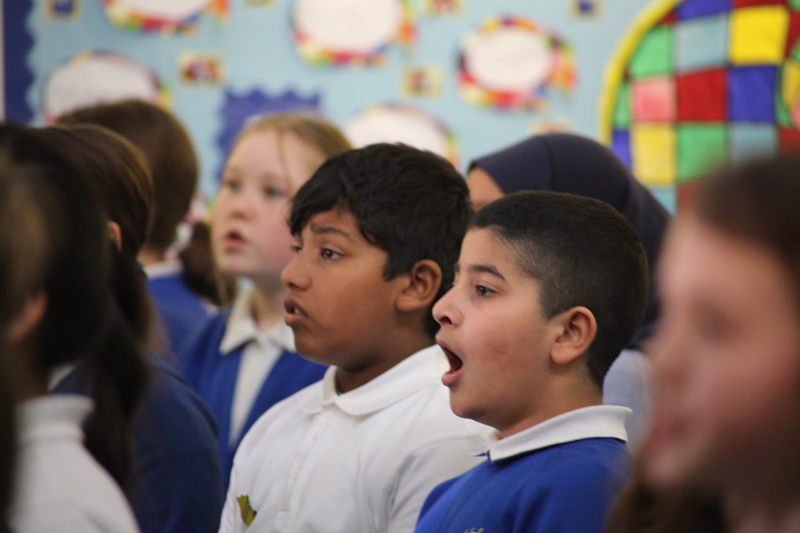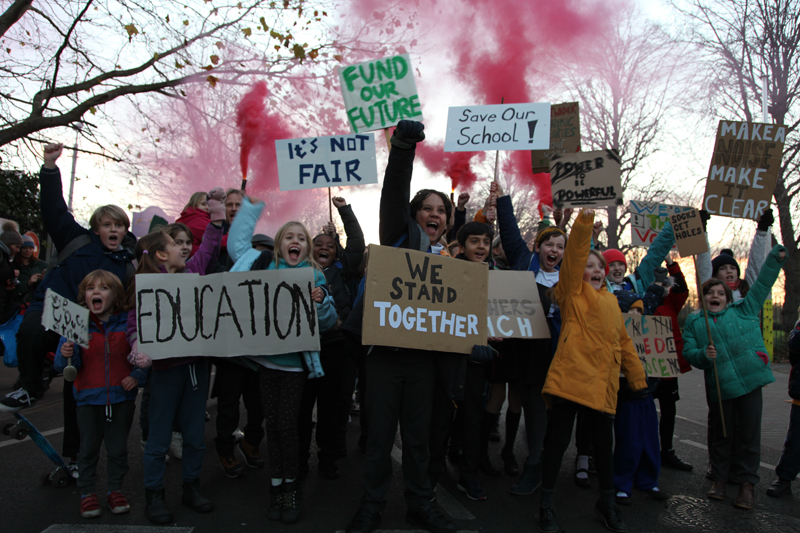A primary school facing a £150,000 deficit this year is raising funds for energy improvements by climbing the charts with its own Christmas single.
Barn Croft Primary School in Walthamstow, east London, released ‘You’re the Voice’ – with an accompanying glossy music video – on Friday.
Three days later, it had reached number three in the iTunes Christmas song list and 36 on the platform’s overall UK singles chart.
So far, £21,867 of a £50,000 target has been raised via a Crowdfunder page advertising the school’s aspiration to bag the Christmas number one spot.
A further £5,000 has been donated by an anonymous benefactor, while M&S Community Energy Fund has provided £5,000 in match funding.
The cash will go towards ensuring the school can majority own solar panels being installed on its roof, helping to save on soaring energy costs.
Headteacher Tracey Griffiths told Schools Week she originally thought the idea of releasing a single was “completely mad” when proffered by a parent.
“I said ‘what a lovely idea, maybe next year’. I thought there was absolutely no way we could get it together before the end of term, the teachers had so much on,” she said.
But after some “badgering” from filmmaker Dan Edelysten and artist Hilary Powell, whose children attend the school, along with fellow parent and freelance filmmaker Natalie Sloan, Griffiths caved.
Children are aware of budget pressures
Children from all year groups were sent home with lyric sheets and practised during lessons. The trio of parents then filmed across the course of one school day.
The result is a swish black and white music video, spliced with footage of children holding signs in protest at real-terms budget cuts.
The song, originally by John Farnham, was chosen because it’s “about children speaking up and out against things”, she said.
“The children know things are tight – they know they’re given a pencil at the beginning of term and they’re expected to look after it.”

But it’s not just stationery that is scarce at the school. Griffiths said a “huge percentage” of this year’s deficit had been caused by unfunded teacher and support staff pay increases, energy costs and inflation.
Even when additional government funding comes in from April – an extra £2.3 billion across all schools – Barn Croft will need to make up the shortfall.
“That’s going to mean things having to be trimmed, like curriculum resources and things on site not getting fixed or replaced,” said Griffiths. “I’ve always said I’d do everything I can to stop redundancies.”
But “two or three” staff members who are working on a supply basis may face the chop. “It’s going to have a massive impact on the children they support,” she added.
Solar panels could relieve school of electricity costs
In an attempt to mitigate financial pressures, the school hopes to buy its own stake in solar panels which are being installed for free by social impact business Solar for Schools in January.
If owned outright, Barn Croft would not have to pay for its own electricity in future years.
“We thought that was a really sensible way to invest in the school, so you’re saving year on year, not just spending on a one off,” said Griffiths.
Such pressures are, of course, not unique to Barn Croft and other schools have taken action into their own hands.

In Bristol, St Michael’s CoE Primary School has so far raised nearly £14,000 using Crowdfunder. The cash will fund more support packages – including food and clothing – for its pupils and their families, as well as outdoor garden classrooms.
Meanwhile in Thamesmead, south London, parents of pupils at Windrush Primary School have raised £4,499 in funds to transform the school’s “lacking” playground into a “haven”.
But as well as its particularly ambitious effort to top the charts, perhaps what makes Barn Croft’s effort most unique is how explicit it is about why it has been forced to raise funds in the first place.
In the video, as children sing lyrics including “we’re not gonna sit in silence”, banners offer statements including “it’s not fair” and “don’t take away our power”.
But Griffiths dismisses the idea it could be seen as political. “Nobody mentions politics, it’s just about wanting schools to have what they need to provide education,” she said.
“Instead of moaning at the government that we haven’t got enough money, we’re trying to sort something out to get ourselves back on our feet.”
















Your thoughts